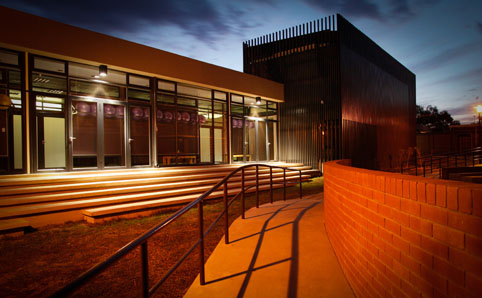Latest News Archive
Please select Category, Year, and then Month to display items
12 January 2024
|
Story Nonsindiswe Qwabe
|
Photo Sonia Small
 Since joining the UFS in 2008, Dr Grey Magaiza has worked extensively on approaches that can foster the socio-economic transformation of societies.
Since joining the UFS in 2008, Dr Grey Magaiza has worked extensively on approaches that can foster the socio-economic transformation of societies.
“The future should be one where communities can decide on their development agenda and futures. That’s the most important for me.” Dr Grey Magaiza, Deputy Director of the Centre for Gender and Africa Studies (CGAS) and Head of the Community Development programme on the Qwaqwa Campus, is passionate about capacitating communities to be agents of change and advancement. His vision for the future emphasises the empowerment of communities to take charge of their development by actively participating in decision making and the implementation of development projects that can improve their lives.
Since joining the UFS in 2008, Dr Magaiza has worked extensively on approaches that can foster the socio-economic transformation of societies. Over the years, he has crafted his research speciality into one that he is most proud of – being an interdisciplinary scientist immersed in the development of communities.
“I’m in a fortunate position of researching what I like. I say ‘fortunate’, because I’ve taken the time to understand what I’m passionate about, which is the overall field of rural livelihoods and livelihood futures – in short, community development. My research starts from an engaged university, understanding the elements that a university must use to enhance transformation and relevance to its immediate community in terms of development.”
One of the ways he has done this is by looking at social entrepreneurship as a development approach for young people in a rural setting. Through workshops with non-profit and civic organisations in Qwaqwa, Dr Magaiza has been helping these organisations to map out their needs and actively meet them through the involvement and support of external role players.
“We understand that communities are part of the national development agenda, but even that national agenda respects community knowledge and intentions and allows communities to shape their identity. A critical enabler of this is community organising. You bring back the capacity in communities to have dialogues on issues affecting them as spaces for engagement, knowledge exchange, and for people to just talk about their way forward.”
By enabling communities to define their development agenda, they can address their specific needs, challenges, and aspirations, he said. “When I look at livelihood futures, it’s quite an exciting aspect of my work – it’s like looking into a fortune tellers’ globe, because you’re not deciding for communities what they should do, but the communities themselves take those decisions.”
Kovsies first with Clinical Skills Centre for the allied health professions
2011-10-27
 |
|
First Clinical Skills Centre in South Africa on our Bloemfontein Campus
Photo: Rian Horn
|
The School for Allied Health Professions within the Faculty of Health Sciences at the University of the Free State (UFS) recently opened the first Clinical Skills Centre for the allied health professions in South Africa.
The multifunctional centre will be used for the practical training of undergraduate students in the allied health professions, which include occupational therapy, physiotherapy, dietetics and optometry.
The concept for the Clinical Skills Centre was the brainchild of the Head of the School for Allied Health, Dr Santie van Vuuren. According to Dr Van Vuuren, the Clinical Skills Centre not only addresses specific needs within the South African context, but also fits in with the current curriculum of the programmes within the School for Allied Health. She says the Centre is a symbol of quality and excellence in the training of undergraduate students.
The Clinical Skills Centre was designed in such a way that it can be converted into one or more lecture halls. It boasts the latest technology such as interactive computer screens which can be used for lectures. Most of the equipment students will use during their practical training is on wheels and can be used between different classes. The centre also has a stair lift attached to a banister to transport disabled people from one floor to another in his/her wheelchair.
Media Release
27 October 2011
Issued by: Lacea Loader
Director: Strategic Communication
Tel: 051 401 2584
Cell: 083 645 2454
E-mail: news@ufs.ac.za